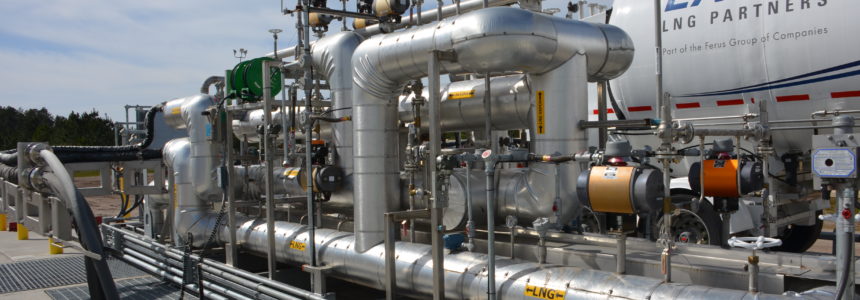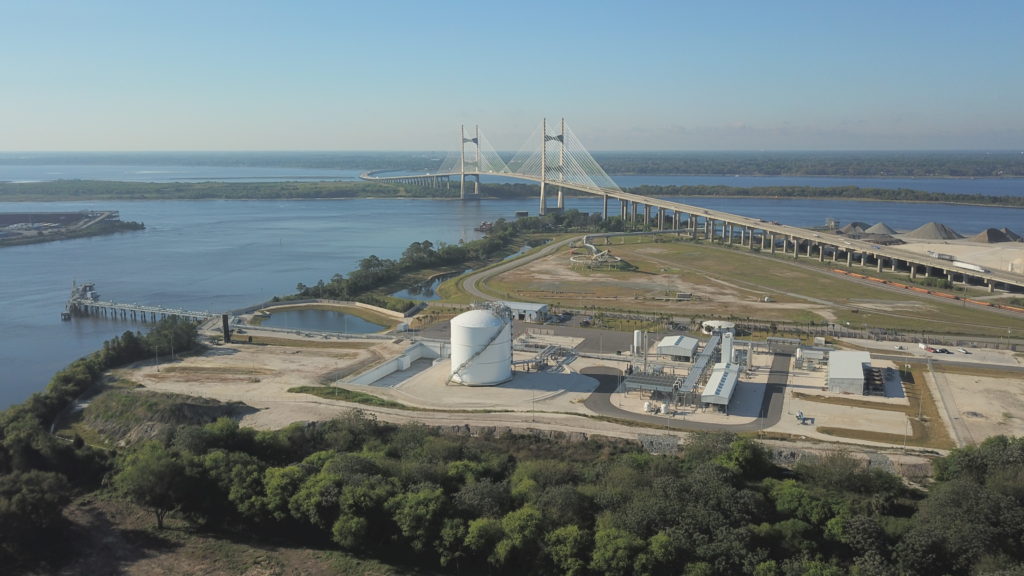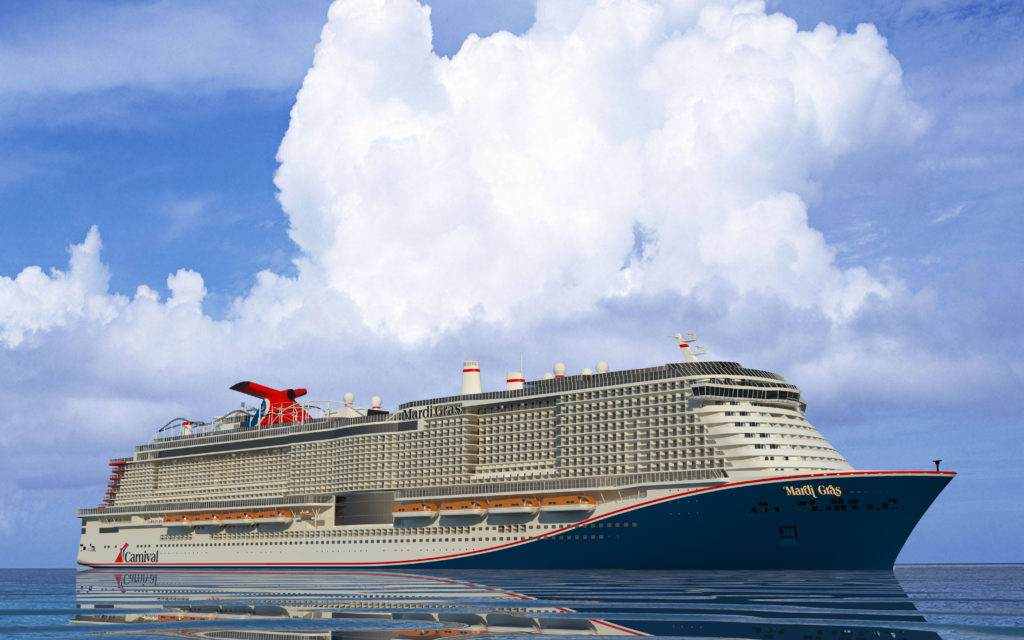News & Updates
Florida Ports Continue to Innovate with Use of Alternative Fuels

A report released this week by the Florida Ports Council shows Florida’s seaports and industry partners are investing in innovations to be more efficient and effective, including the implementation of environmentally friendly, less costly, domestically-produced natural gas as an alternative fuel. Florida’s 15 ports support more than 900,000 jobs across the state, and have a total economic impact of more than $117 billion.
As more stringent air quality regulations for port operations and maritime vessels are required by the International Maritime Organization and implemented across the world, there is increased demand for alternative fuels in the national and global transportation industry, according to the Alternative Fuels Study.
In shipping and rail industries, liquefied natural gas (LNG) has proven the most cost effective and beneficial alternative fuel source. In fleet and cargo handling operations, compressed natural gas (CNG) and LNG are both reliable alternatives, subject to the particular application and task.
“The rapid expansion of the natural gas industry and the alternative fuel market provides an exciting opportunity for Florida seaports to expand their use of natural gas, creating economic and environmental benefits for the state,” said Doug Wheeler, Florida Ports Council President and CEO.
Wheeler continued, “Our ports are in a unique position to capitalize on their economic strength and are on the leading edge nationally of LNG for cargo and cruise vessels. We must ensure that Florida has the infrastructure and business climate to promote the economic and environmental benefits from these alternative fuels.”

Florida seaports are on the leading edge of alternative fuel utilization nationally and have continued the development and deployment of alternative fuels for cargo and cruise vessels. For example, JAXPORT has the largest LNG bunkering operation at a U.S. port, which includes JAX LNG and Eagle LNG facilities with the capability to serve not only the domestic fleet but larger international vessels as well. Other ports around the state including PortMiami, Port Tampa Bay and Port Canaveral that are capable of handling ISO containers without modification are also poised to receive LNG delivered by truck or rail, and then loaded onto container ships or roll-on/roll-off oceangoing carriers for export.

A rendering of the first fully liquefied natural gas-powered cruise ship in North America, Carnival Cruise Line’s Mardi Gras, set to homeport at Port Canaveral.
And according to the Cruise Ship Order Book, 26 new LNG powered cruise ships are to be built and delivered between 2020-2026. As cruise vessels shift toward alternative power sources, Florida’s cruise ports such as PortMiami, Port Everglades, and the Port of Palm Beach will invest in infrastructure to accommodate this new type of vessel. Port Canaveral will homeport the first fully liquefied natural gas-powered cruise ship in North America, Carnival Cruise Line’s Mardi Gras, later this year, and the new ship will be fueled by an LNG bunkering barge.
Florida seaports have a tremendous impact on the state and remain committed to promoting sound practices that benefit our communities, our economy and our environment.
